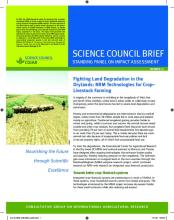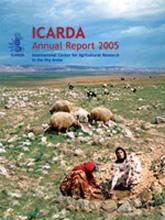Land Library
Welcome to the Land Portal Library. Explore our vast collection of open-access resources (over 74,000) including reports, journal articles, research papers, peer-reviewed publications, legal documents, videos and much more.
/ library resources
Showing items 1 through 9 of 13.Increasingly, social capital, defined as shared norms, trust, and the horizontal and vertical social networks that facilitate coordination and cooperation for mutually beneficial collective action, is seen as an important asset upon which people rely to manage natural resources and resolve confli
This report describes the use of improved methodologies developed for identifying water-harvesting sites. It also provides general guidelines for determining site potential in relation to various parameters.
A tragedy of the commons is unfolding in the rangelands of West Asia and North Africa (WANA), where land is either public or collectively owned. Overgrazing under this land tenure has led to severe land degradation and soil erosion.
The year 2005 was an important milestone in the efforts of ICARDA and its partners in meeting the global challenges of agriculture in dry areas through the application of science.
In this oil research paper, we have set out the challenges confronting oil producing countries in sub-Saharan Africa by giving case studies of Nigeria, Angola and Equatorial Guinea. We have also critiqued the draft National Oil and Gas Policy under formulation as well as the legal framework.
The objective of this research was to assess the multiple effects of land-use change in a high populated steepland environment on land degradation processes and farmers' coping strategies.
This report presents descriptive statistics derived from the survey data. It simply describes the situation in the
Badia in spring 2005. Further ecological and economical analyses and conclusions will be reported in
another document.
This paper presents the preliminary findings of a study on land conflicts between refugees and host communities in southwestern Uganda and their impact on refugee women’s livelihoods.
During the last two decades, the Tunisian government has engaged in a vast program for the conservation and mobilization of natural resources.









